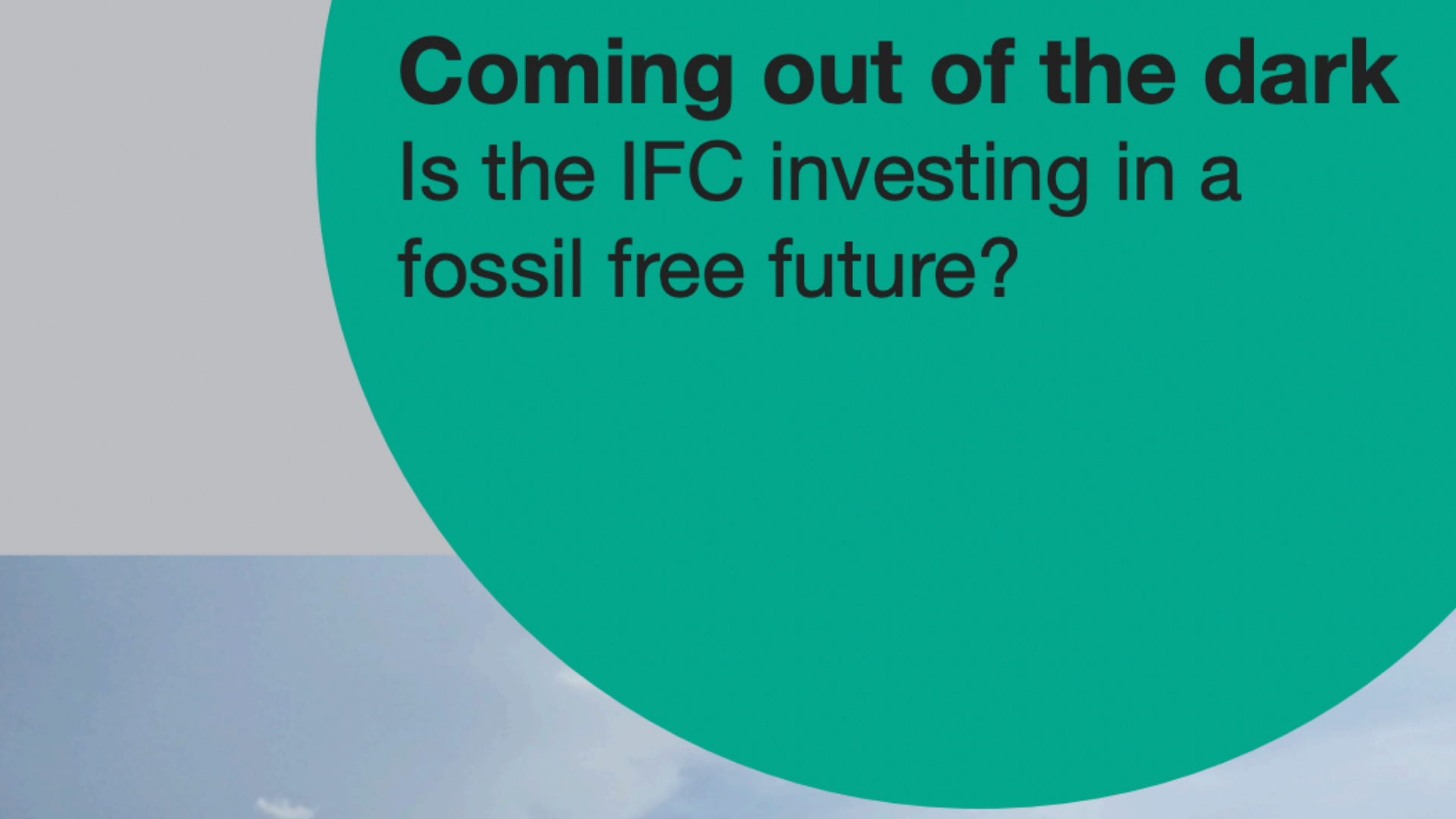- 13.11.2018
- Ecological justice
- Array
The seismic shift on climate finance that you may not have heard about…..
The timing was perfect. The very same day that the International Panel on Climate Change (IPCC) issued its dire warning about runaway global warming, a leading international financial institution announced a “bold” new policy to help its clients shift their funding away from coal. The CEO of the World Bank’s private sector arm, the International Finance Corporation, Philippe Le Houérou, wrote in a blog on October 8th that the IFC would henceforth work with its clients to reduce and exit coal in their investments.
Why is this such a big deal? Many banks have recently made similar commitments – like Société Générale and BNP Paribas. What’s different is that the IFC is the mother ship – the standard-setter for private investors and development finance alike around the world. The IFC itself has a $57 billion portfolio but it influences another $4.5 trillion in investments in emerging markets, since everyone from commercial banks to export credit agencies follow the IFC’s lead. The IFC sending a strong signal that there is no future for coal will send a cold shiver down the necks of those of its clients – like national banks in India, the Philippines and Vietnam – that remain up to their necks in coal.
Le Houérou cited personal commitment to the climate cause, through his own father’s contributions to the IPCC. He was also big enough to credit the long hard struggle of civil society and the communities affected by IFC-backed coal projects for this shift in direction.
Le Houérou wrote, “Over the past few years, civil society groups have been critical of IFC for supporting financial intermediaries that have coal exposures… In the past, we have made equity investments in banks that may have exposures to such coal projects, and we have given general purpose loans to banks and those funds may have inadvertently been invested in coal projects.”
A senior source inside the IFC told me that one trigger in particular had proved a game-changer for the IFC: a mass climate complaint filed by communities in the Philippines a year ago to the IFC’s watchdog, the Compliance Advisor Ombudsman. The CAO has found the complaint eligible in 11 separate projects, that claim the IFC, through its investment in Philippines bank RCBC, has backed a raft of coal plants. Since the complaint was filed, four of those plants have been completed. For those communities, the IFC’s newfound conscience on coal has come too late.
During a meeting with civil society at the World Bank’s Annual Meetings in Bali in early October, Le Houérou came face to face with complainant Bibiano Rivera of the Philippines Movement for Climate Justice, a coalition of over 300 local groups. Rivera presented a letter to Le Houérou saying, “Our people and the planet urgently require much bolder actions. We call on the IFC to withdraw equity from all clients – financial intermediaries and corporations – who refuse to divest from coal and other fossil fuels and this means immediately… If RCBC does not bring its investments into compliance with the IFC Performance Standards and commit to no more coal investments, we urge IFC to divest and exclude RCBC from future IFC investments, and relinquish its board seat.”
In a report released today, Bank Information Center Europe and the Centre for Research on Multinational Corporations (SOMO) examine how the IFC remains exposed to fossil fuels, including coal, despite earlier pledges. The report details several investments and highlights two cases in particular: a coal plant in India to which the IFC is exposed via its investment in Federal Bank; and in Myanmar the expansion of a cement plant, backed by the IFC directly and through its subsidiary, the Asset Management Company. The IFC itself says that the expanded plant will end up quadrupling greenhouse gas emissions, partly due to the increased demand for coal needed for the cement production.
The impacts of such projects are not only important for the contribution they make to warming our planet, but for the often significant local damages to land, water and forests and to the health and livelihoods of communities who are unlucky enough to live near the mine, pipelines or plant backed by IFC FI investments.
Joe Athialy, director of the Centre for Financial Accountability India, supports communities adversely affected by a thermal power plant, partly financed through an IFC FI client back in 2007. He is calling for the IFC to redress past harms: “The IFC’s change of heart on coal has come too late for the communities affected by the GMR Kamalanga coal plant, who continue to suffer to this day. As part of its reforms, the IFC should put right past damages and ensure its clients provide redress to affected communities.”
Given we have just 12 years to avert runaway warming, the IFC’s focus on excluding coal is all well and good, but what about other fossil fuels? Alex Doukas, from the Big Shift coalition, argued ”This is an important step by the IFC to redirect its investment to align with the Paris Agreement on climate change, and other financial institutions should sit up and pay attention. This move reflects the tireless efforts of frontline communities fighting destructive coal projects while feeling the impact of a changing climate. The IFC must now also ensure that it extends this new approach to be consistent with the World Bank Group’s broader commitment to end finance for oil and gas extraction, and lead a transition of all investments toward a safe climate future.”
Le Houérou told online journal Devex that while in future the plan may include other fossil fuels, “We have to be pragmatic and start with the worst offender which is coal … and let’s take it from there.”
As the head of a multilateral bank who has intimate knowledge of the IPCC, this is not quite bold enough.

